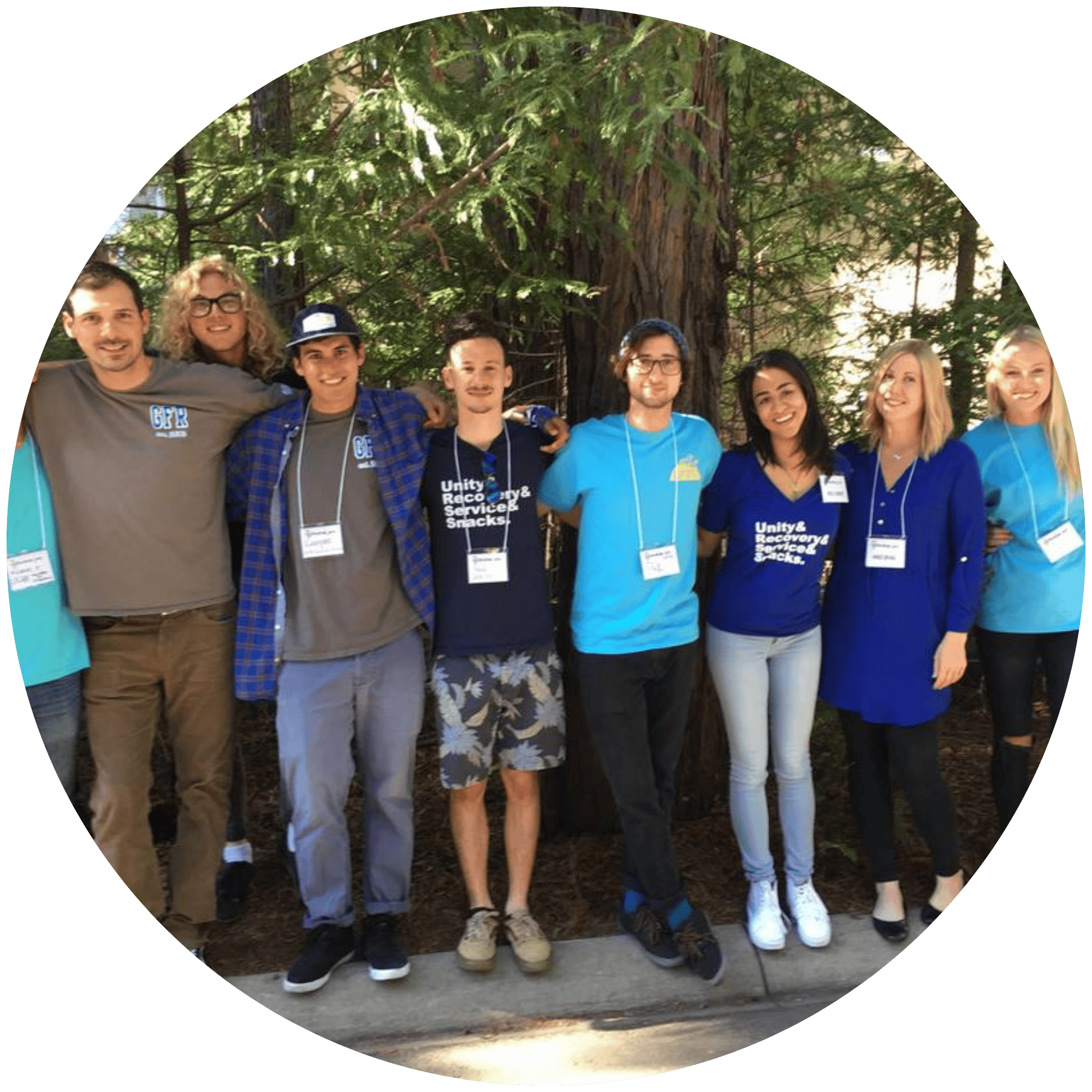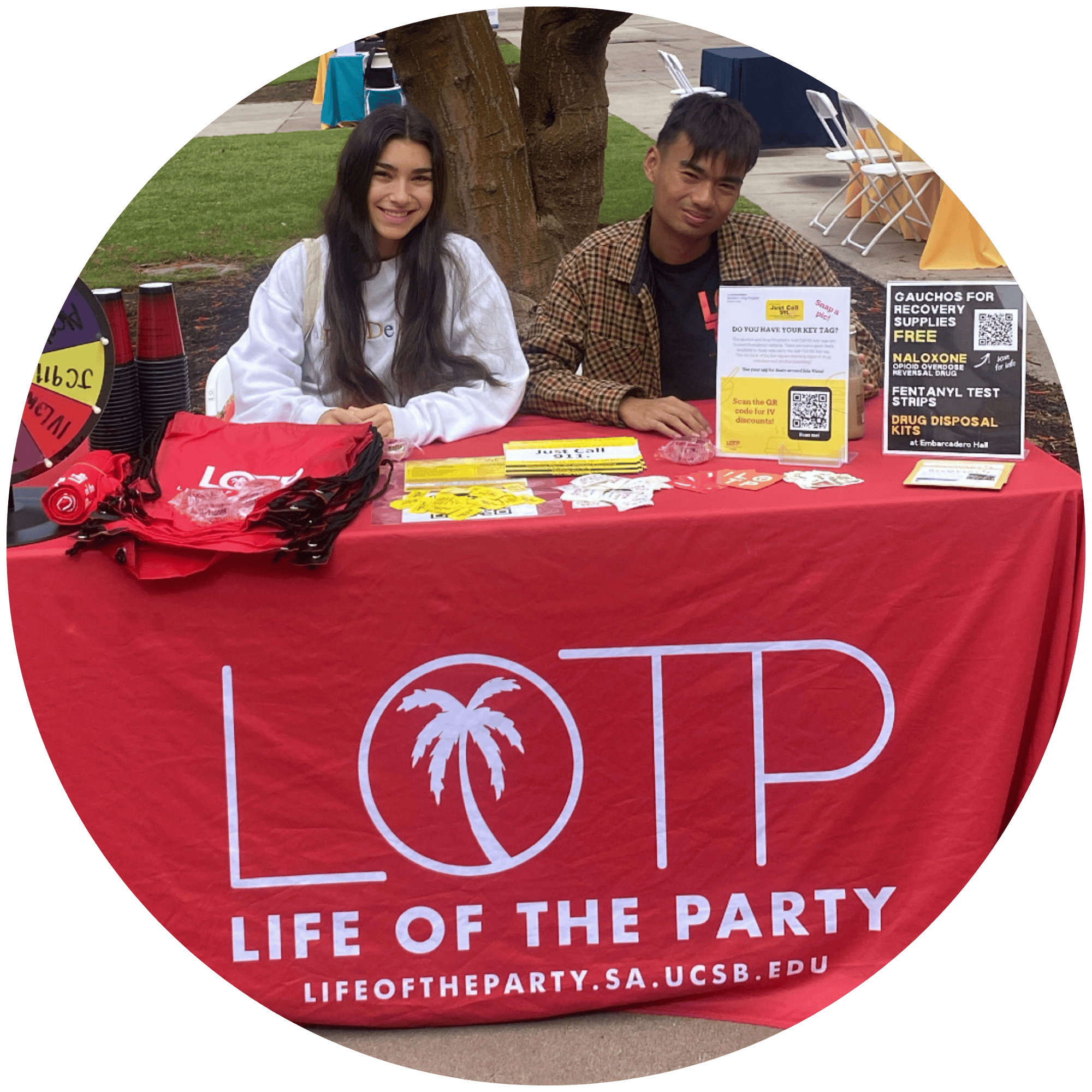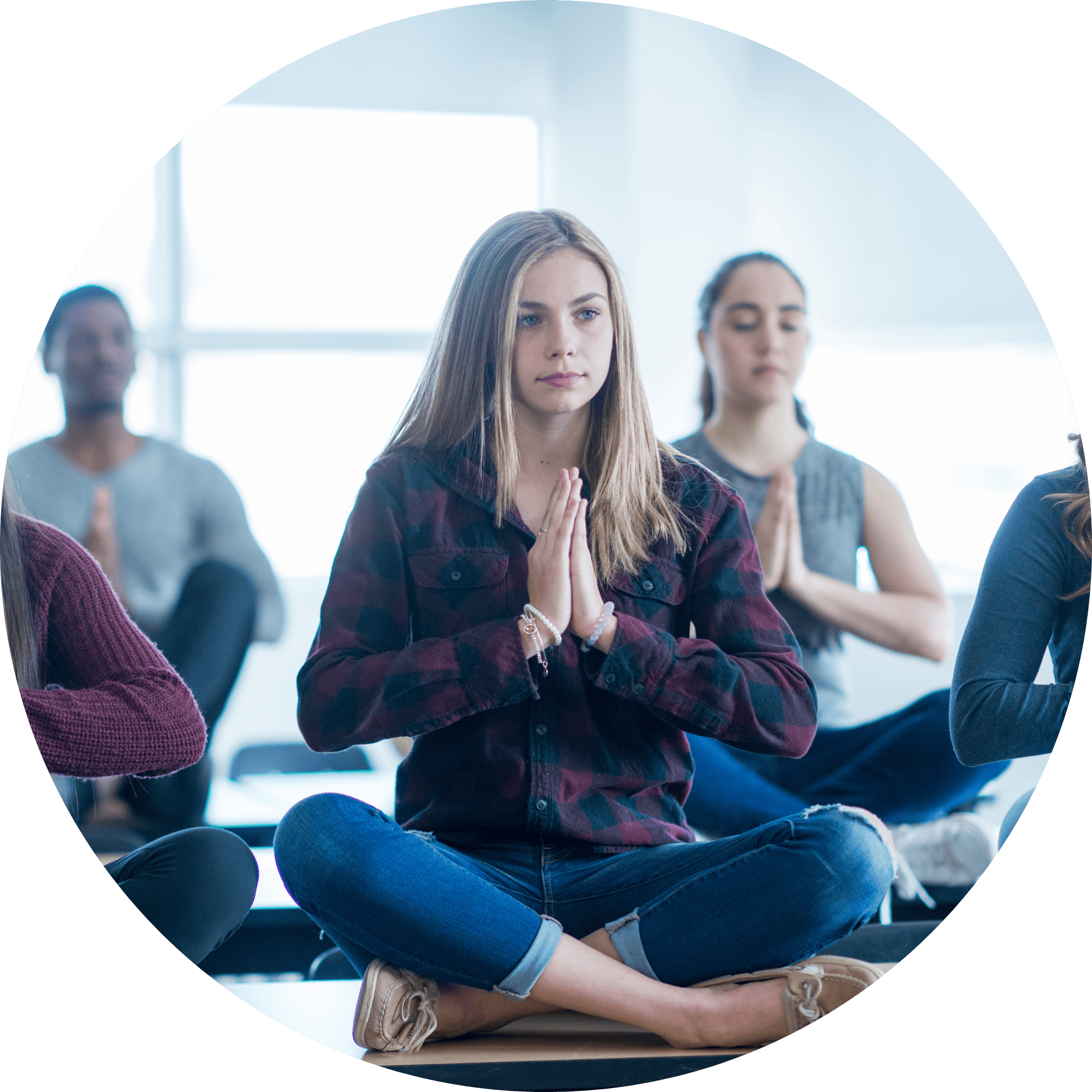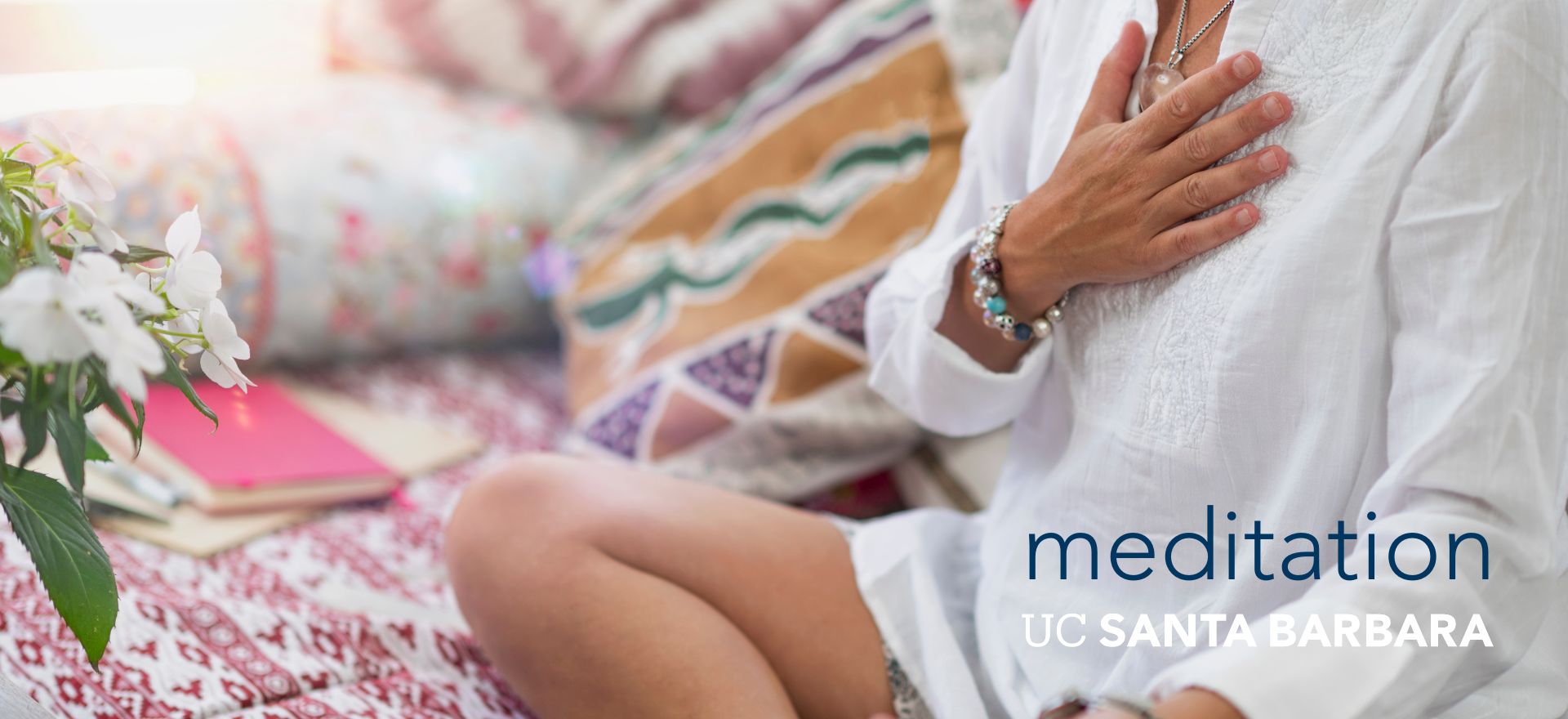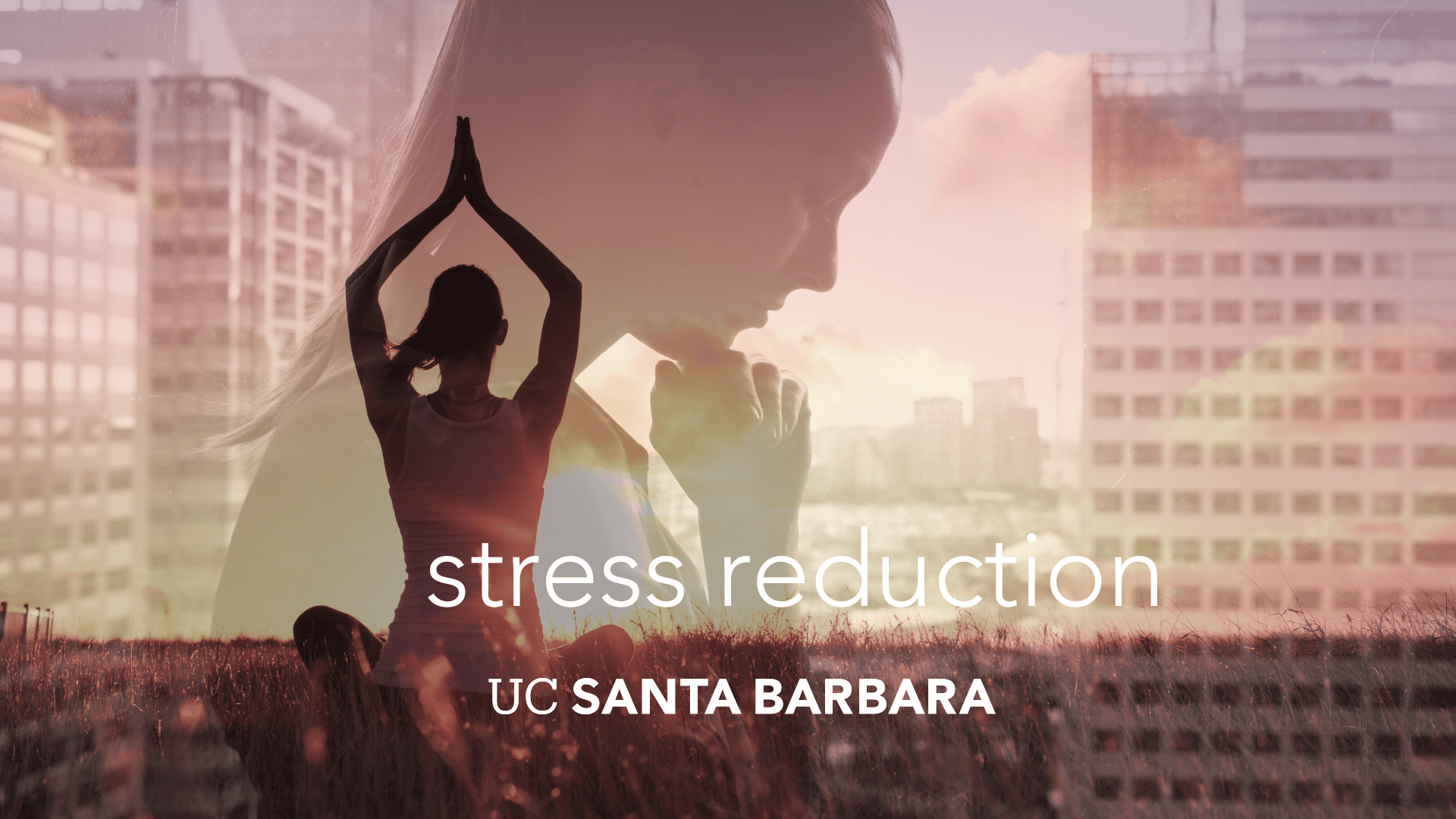
What type of mental health information are you looking for?
Welcome to Mental Health
This page focuses on resources that support the Mental Health of students and staff at UC Santa Barbara. For more proactive wellbeing options, see the proactive wellbeing page on this site.
Here you can information on mental health services, meditation and wellness programs, therapy options, peer-based support groups, and more!
In-Person Talk Therapy
Counseling and Psychological Services (CAPS)
CAPS offers single session, short term, and long term talk therapy in either one-on-one or group therapy formats. In addition, Mental Health Peers offer workshops, support, and education on mental health topics to students. Professional consultation is available to faculty, staff, and families. All registered students are eligible for services at CAPS. When help is needed in sorting out a personal concern, CAPS is a resource for learning new skills in building self-confidence, relating to others, reducing stress, solving problems, and identifying options.
How to Get Started at CAPS
Short-Term Individual Counseling
What Happens In a Brief Assessment?
Single Session Therapy
Long-Term Individual Therapy
Group Therapy
The Group Counseling program at CAPS includes offerings that can help students learn skills, manage distress, and/or build community. There is no additional cost for groups. CAPS services are covered by your student fees! Some groups require a different level of commitment ranging from drop-in once to quarter-long. If you have any questions, please contact CAPS at (805) 893-4411. If group therapy sounds like a match, please click the buttons below to check out the available groups:
Focused on teaching content and skills that can help students manage mental health concerns.
Identity-specific groups offer individuals with shared visible and invisible or hidden identities a space to process current issues, provide support to one another, and build community.
These groups offer students an opportunity to process concerns and seek support from peers, as well as a chance to practice social skill building and connecting with others.
Social Work Services
Student Health Social Workers provide confidential services focused on enhancing and supporting student health and wellness.
Social Work Services offers complex needs counseling to students who require additional support such as:
- Support with returning to UCSB after an extended leave
- Medical care support or advocacy- for new or chronic conditions
- Continuity of care support when leaving or graduating from UCSB
For more information, please schedule an appointment with a social worker by calling (805) 893-3371.
Additional Talk Therapy Services
Hosford Clinic
Hosford Counseling & Psychological Services Clinic is part of the Gevirtz Graduate School of Education (GGSE) and is a seperate department/division from Student Affairs' Mental Wellbeing Services: CAPS, Student Health's Behavioral Health Services, and Student Mental Health Coordination Services. The Hosford Clinic provides culturally sensitive, low-cost individual, couple, family, and group psychological treatment to the entire Santa Barbara community.
- Serves general public, students, faculty and staff from local colleges
- Training site for students in the Department of Counseling, Clinical, and School Psychology (CCSP)
- Clinical-research facility for faculty and students in Dep. of CCSP
- Provides educational, consultation, and training services to clinicians and educators in the tri-counties
Online Talk Therapy

UWill
Covered by CAPS Credits and accessed through referral only.
UWill offers chat messaging and 30 minute teletherapy sessions, through credits offered to all students through CAPS. UWill requires a referral from campus mental health providers. For more information, click the button below:
Live Health
Covered by UC SHIP with no co-pay. Other insurance may offer coverage with a co-pay. This is UC-Wide Service
LiveHealth Online connects students with licensed providers (medical doctors, therapists, or psychiatrists) for teletherapy services. For more information, click the button below:
Peer Support
Mental Health Peers
The Mental Health Peer (MHP) Program’s mission is to increase knowledge about mental health topics and resources and decrease the stigma attached to mental health. Our 21 peers are passionate about helping all students thrive, offering a variety of resources for education, prevention, and intervention. The Mental Health Peers (MHPs) are trained in basic counseling skills and provide students with support, basic stress management techniques, and peer advising on stress-related or mental health-related issues and concerns.
Check out their offerings below, and get more info by clicking above!
Drop-In Support
The Mental Health Peers (MHPs) are available during business hours for drop-in support for those who are curious about CAPS and MHP resources, those who are struggling, other those who want to help a struggling friend/family member but don't know how to start the conversation. We can assist students in learning techniques to cope with stress, talk to loved ones, and get connected to appropriate resources.
School Anxiety Program (SAP)
University is a high pressure setting, which can impact test taking abilities, concentration, sleep, and stress levels. The School Anxiety Program (SAP) includes up to three 1-hour long sessions starting with a group workshop. This can be followed by two one-on-one sessions with a MHP focused on time management, coping, and relaxation. To participate, visit the calendar and attend any SAP workshop. You will have the option to request the individual sessions at the end of the workshop.
Workshops/Seminars
MHPs offer workshops regularly, listed on their calendar. Workshops are also available by request (both on and off campus) for organizations and groups of 10 or more people. MHP's can cater pre-existing workshops or design new ones to cater towards a group's needs. Please submit a workshop request at least 10 business days prior to the requested date. Questions? Stop by the MHP office or call (805) 893-4411 and ask to speak to a Mental Health Peer!
Addictive Behaviors & Recovery (ABR)
ABR Clinical Services at Counseling & Psychological Services (CAPS)
Clinical services related to alcohol, cannabis, nicotine, other substances, gaming, gambling, screen use, pornography, and other addictive behaviors are now offered through Counseling & Psychological Services (CAPS). Licensed therapists provide free, confidential counseling for UCSB students who are self-referred, referred by others, or concerned about someone else. ABR clinical services use evidence-based, harm-reduction approaches to support healthy choices, reduce high-risk behaviors, and connect students with additional resources on and off campus. Free nicotine-cessation support, including gum, lozenges, and patches, is also available.
Learn more or request an appointment at
CAPS ABR Website
ABR Recovery & Prevention Programs are provided through the Department of Health & Wellness
Complementing CAPS’ clinical care, the Department of Health & Wellness provides education, prevention, and recovery support as part of the ABR program. These services are designed to build a campus culture that supports wellbeing, informed decision-making, and recovery inclusion.
Gauchos for Recovery (GFR) is a peer-driven program that offers a safe, supportive, and engaging environment for students in or seeking recovery from substance use or other addictive behaviors. GFR supports students pursuing any recovery pathway they choose, as well as those affected by the substance use of friends or loved ones. The program fosters a recovery-ready campus through six key elements: a community of supportive peers, recovery-oriented meetings and events, leadership and service opportunities, a recovery-friendly space, peer and professional support, and harm-reduction services.
Life of the Party (LOTP) is a student-led initiative that focuses on harm reduction and prevention. The program promotes safer partying, informed decision-making, and the creation of alcohol- and drug-free social events that help students connect and thrive in healthy, supportive environments.
Diagnoses & Medication
Students can get mental health diagnoses from:
- Social Work Services at Student Health
- Psychiatric Services at Student Health (info below)
Note: Primary care providers can also provide diagnoses for simple depression and anxiety without recent hospitalization, substance abuse, or suicidal ideation.
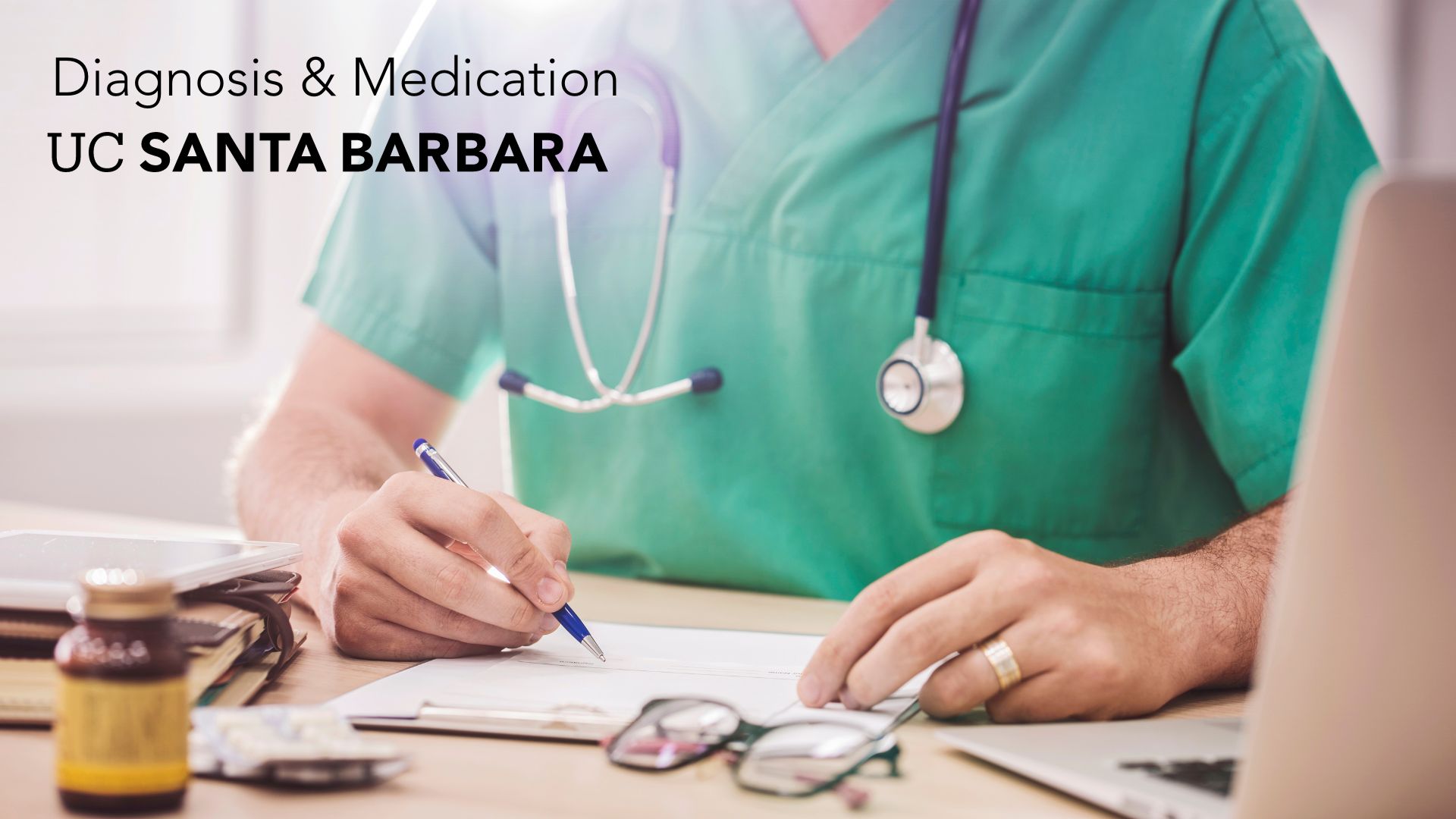
Psychiatric Services
This service is covered by UC SHIP or BARC for other insurance plans.
Student Health has psychiatrists and social workers who are available by referral from either Counseling and Psychological Services or primary care clinicians within Student Health. Our psychiatrists provide evaluations and, if indicated, medication and short-term supportive psychotherapy. Students with UC Student Health Insurance Plan (UC SHIP) are not charged for these visits; students covered by other insurance will be billed through BARC.
What does a Psychiatrist do?
- Problems can arise suddenly, such as feelings of anxiety or depression, which can cause daily life to feel uncontrollable. Our Psychiatrists are specialists who evaluate, diagnose, and treat patients who are affected by temporary or chronic mental health and/or physical disorders. They can also, if indicated, prescribe medication and short-term supportive psychotherapy.
New and follow-up appointments: Call (805) 893-3371
Cancellations: Cancel your appointment on the Patient Portal Gateway or by calling (805) 893-3371.
Late cancellation and no-show fees may be applied.
After-hours: Crisis services are available by calling 805-893-4411 and selecting option “2.”
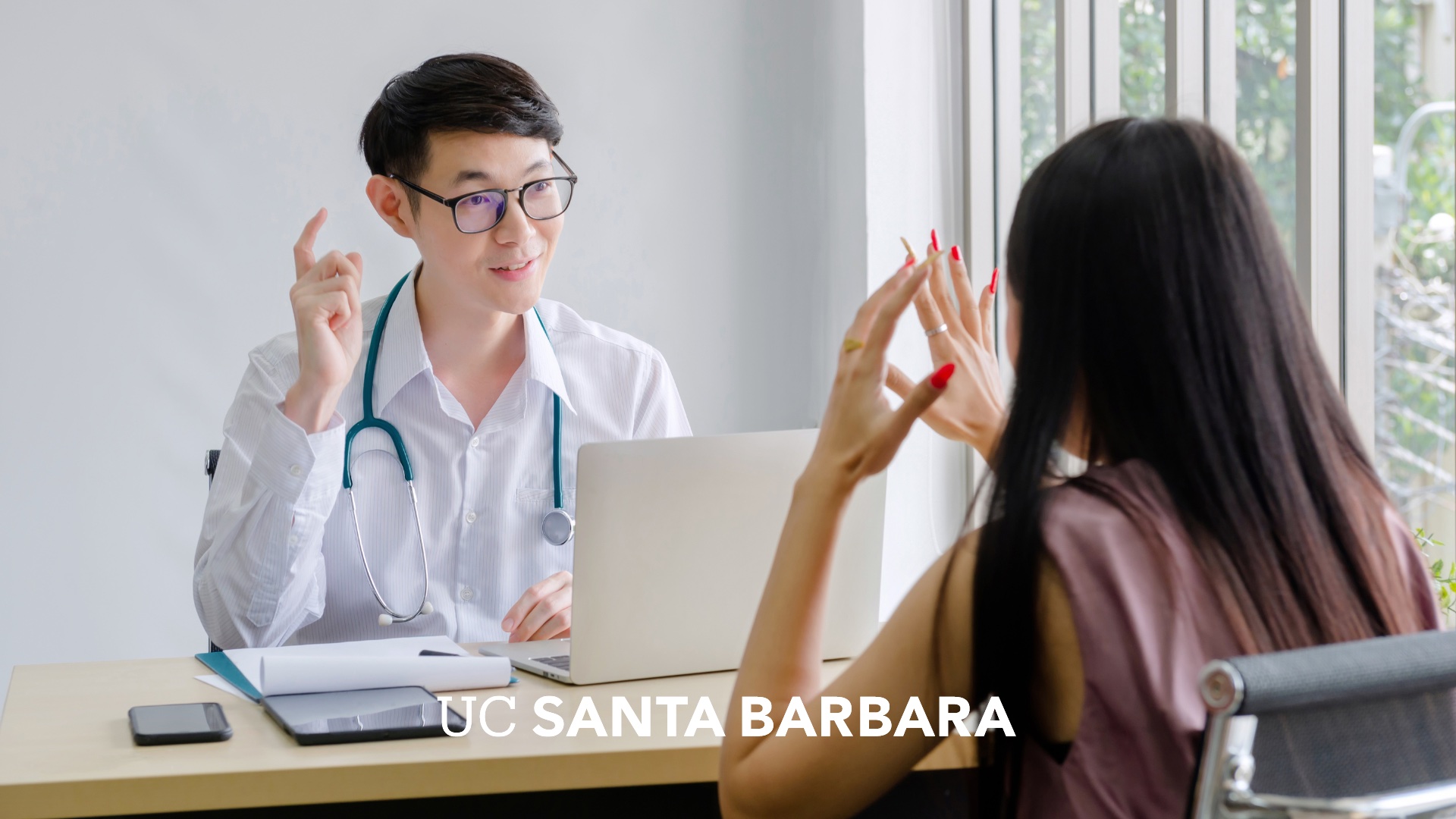
Concern for Student
Student Mental Health Coordination Services
SMHCS (although located in Student Health Service Building) is a separate department from both CAPS and Student Health's Behavioral Health Services. It is, however part of the same Student Affairs division as CAPS and Student Health's Behavioral Health Services.
The Student Mental Health Coordination Services (SMHCS) office is the single point of contact for the campus community to report concerns about a student in distress or a student distressing others. As the department that collects all information regarding distressed student concerns, SMHCS Coordinators are able to construct a holistic picture of how referred students are functioning and connect them with appropriate campus resources. As a non-clinical office, SMHCS is able to collaborate with other departments on campus to provide coordination of care, interventions, social support, and follow-up services from a network of campus resources.
When appropriate, SMHCS will mobilize the Students of Concern Team (SOC) and/or the Student Behavioral Intervention Team (SBIT) to provide a coordinated University response to a student in distress or a student distressing others. Both teams consist of a multi-disciplinary group of professionals who work to improve the health and safety of the campus community while supporting students’ ability to achieve academic success. The SOC and SBIT Teams meet weekly to determine appropriate interventions, develop individualized response plans, and connect students to campus and community services.
Mindfulness & Meditation
Mindfulness Meditation Program at The Department of Health & Wellness
While honoring the traditional roots of meditation practices, Health and Wellness's programs are shaped by the research backed findings of mindfulness as a tool to alleviate suffering in our modern day lives.
As our minds engage in reverberating thoughts of the past or future, we can often over stimulate our fight or flight response.
By retraining the mind to build new neural pathways through the practice of being present minded, we can reduce stress and increase equanimity. Facilitated by a trained instructor, all offerings are beginner friendly with no experience or particular beliefs needed.
Come join us!
Aura Health App
AURA is an app that helps you manage your emotions, improve sleep, and find peace. Aura Health has generously offered their app free for 6 months for students, staff, and faculty.
The university does not endorse any one app over another. Be sure to see the UCSB Aura Health page before going to the Aura Health app.
Linking to the Aura App does not constitute an endorsement of Aura's products or services by UCSB or any of its employees. By leaving the UCSB site and/or utilizing the Aura App, you will be subject to the Aura App's privacy policy.
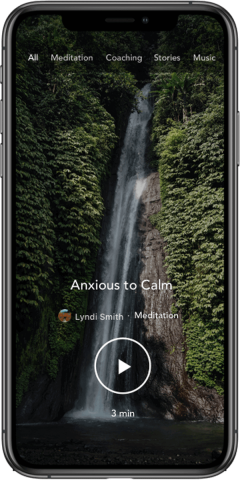
Stress Reduction
College can be a stressful time for many reasons, whether it be living away from home, academics, work or relationships. Health and Wellness aims to provide short-term and long-term stress reduction education and opportunities for students not only to improve academic performance but aid in the process of creating a long, happy and healthy life.
Stress is the body's reaction to any change that requires an adjustment or response. The body reacts to these changes with physical, mental, and emotional responses. Stress is a normal part of life.
Stress can be positive, keeping us alert, motivated, and ready to avoid danger. Stress becomes negative when a person faces continuous challenges without relief or relaxation between stressors. As a result, the person becomes overworked, and stress-related tension builds.
The Department of Health & Wellness offers Stress Reduction programs and resources. Check out the link below for more info!
Healthy Body Image
Eating disorders are real, serious, complex medical and psychiatric illnesses that affect people of all genders, ages, races, ethnicities, body shapes and weights, sexual orientations, and socioeconomic statuses. Eating disorders significantly hinder a student’s social, emotional and academic success. We strive to create a culture that promotes size diversity, body acceptance, and a healthier body image for all humans. The Department of Health & Wellness offers Healthy Body Image programs and resources. Check out the link below for more info!
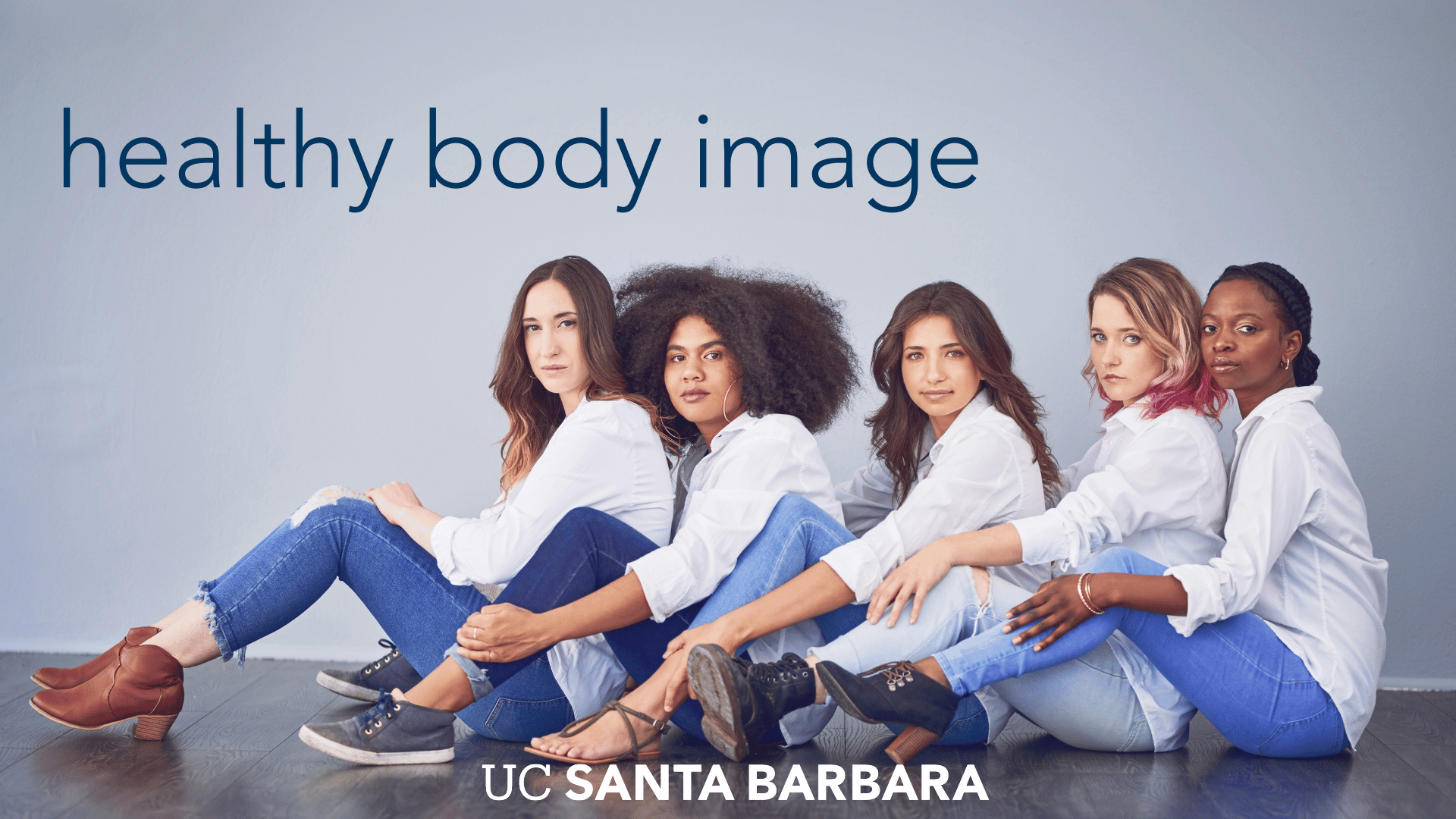
Positive Psychology
Positive psychology interventions help us to thrive in life. Health and Wellness focuses on five areas: developing strong positive relationships, developing skills throughout life, living a meaningful life by using your skills to contribute to something bigger than yourself, accomplishing goals, and increasing positive emotions. Health and Wellness's Positive Psychology Program includes workshops, events, and online learning. Check out upcoming events and some really useful resources at the link below!
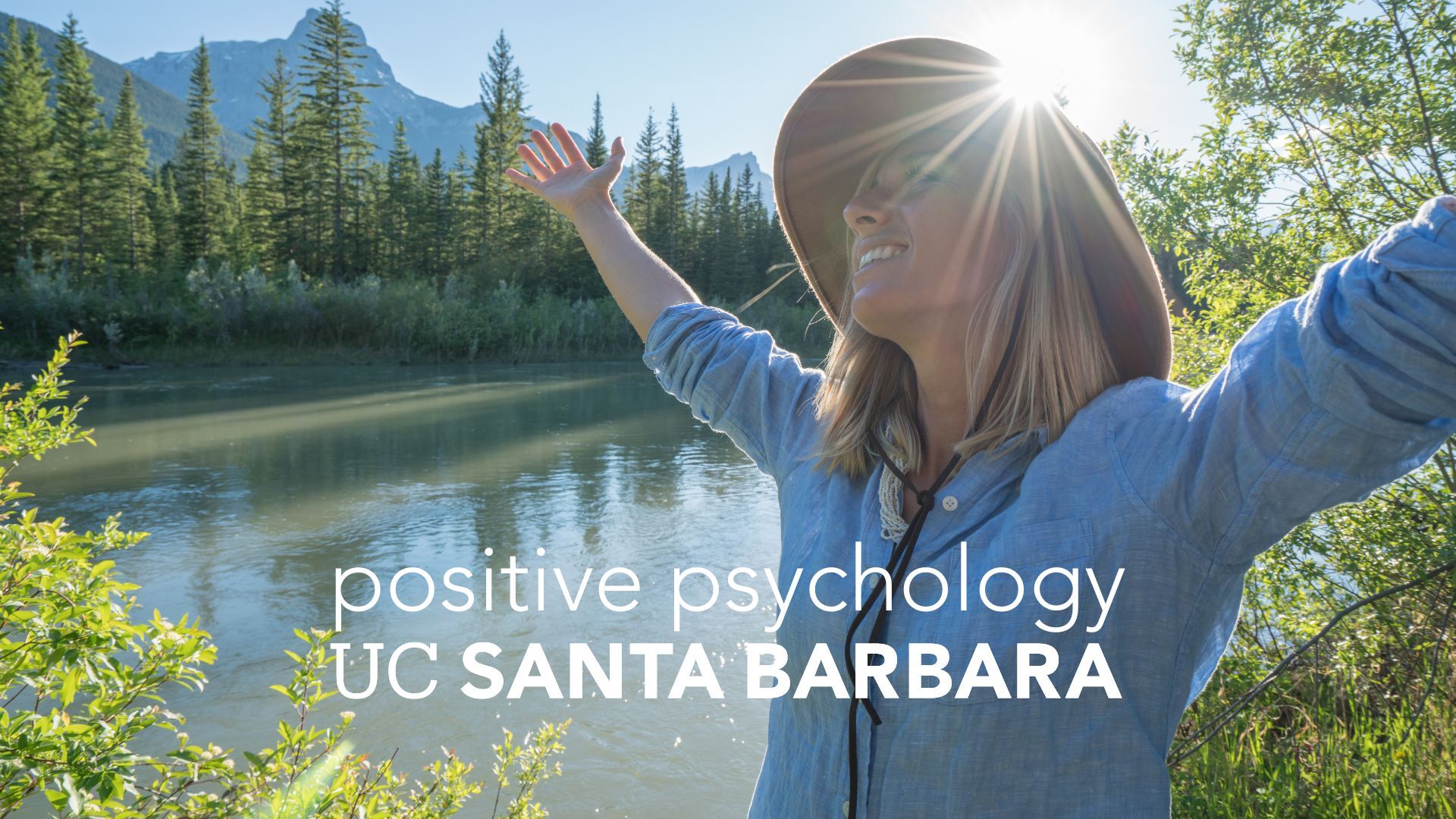
Sociopolitical Stress Resources
Sociopolitical stress has been shown to significantly affect mental health, especially in college students. The constant barrage of news, social media conversations, and personal encounters with these issues can contribute to a range of mental health challenges, including anxiety, anger, and depression. As a result, it is important to recognize the connection between sociopolitical stress and mental health, and to develop effective strategies for coping. By understanding the underlying factors of this stress and adopting healthy management techniques, you can better navigate the complexities of an increasingly polarized world and protect your overall wellbeing. If you notice any of the following signs, you may be suffering from sociopolitical stress.
-
Worry & Anxiety: Finding yourself thinking about the political climate constantly and its implications, which can increase anxiety and worry, making it hard to relax and enjoy your usual activities.
-
Difficulty Concentrating: Having trouble focusing on work, studies, or your personal life due to racing thoughts about the political climate.
-
Physical Symptoms: Headaches, stomach aches, and increased heart rate, are symptoms associated with anxiety.
-
Difficulty Sleeping or Sleep Pattern Changes: Waking up feeling tired or have trouble getting a good night's rest because your mind is racing about the political implications.
-
Increased Irritability: Things that normally wouldn't bother you trigger frustration more easily.
YOU ARE NOT ALONE! There are many ways to manage socio-political stress and there are resources available to you.
UwIll, an online mental health resource contracted with UCSB CAPS (Counseling & Psychological Services) is available to UC Santa Barbara students.
Uwill is available with the use of free available credits (plenty are available) and can also be used for brief online therapy 30 minute sessions without needing the approval from CAPS. Additional sessions can be extended upon request with CAPS as well!
You can register for Uwill here with your UCSB email address:
For additional resources on managing election stress, check out this new resource page:
